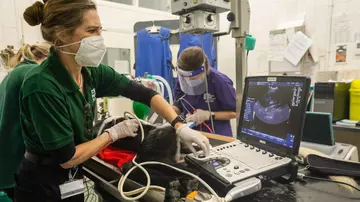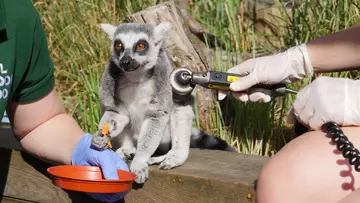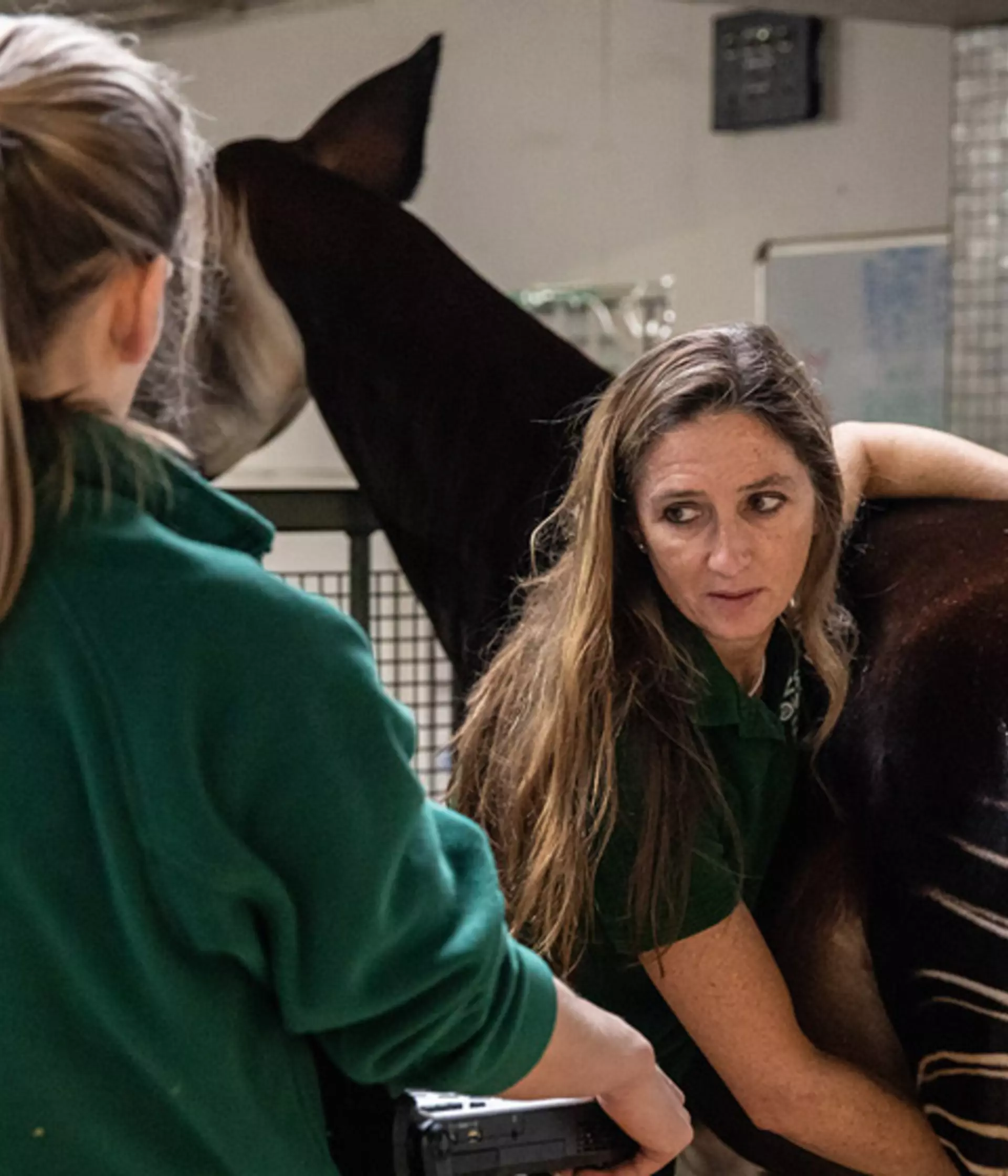
Whether treating a white rhino for tooth decay or vaccinating badgers to prevent disease in the wild, our Wildlife Health Services department is at the heart of ZSL’s commitment to animal welfare and conservation.
Aspiring to achieve the highest standards of care, ZSL’s vet team staff both clinical and pathology facilities for ZSL London and Whipsnade Zoos.
Become a part of our story
The department has grown steadily since it's establishment in 1951, when Oliver Graham Jones became the first full-time vet to be appointed by ZSL. State-of-the-art animal hospitals were later opened at ZSL London Zoo in 1955 and ZSL Whipsnade Zoo in 1998, and the team now includes four vets, five vet nurses, a pathologist, a microbiologist, a technician, a welfare officer and an administrator.
Vet careers event
Vet Careers Day
The perfect event for anyone who is considering pursuing a career in veterinary medicine, veterinary nursing or wildlife health.
What does the role involve?
Our veterinarians play a vital role in helping care for our animals at both zoos. Our vets work closely with our animal keepers to ensure our animals are as healthy as they can be by administering vaccinations, performing surgeries and helping prevent any disease outbreaks. They’ll also regularly report on, and publish appropriate clinical research materials in journals and textbooks and help train students on courses run by ZSL and the Royal Veterinary College (RVC).
We also have a team of veterinary nurses who provide vital support to our vets: assisting during treatment and procedures, liaising with keepers to take samples or check on treatment progress, supporting with training for welfare behaviours and much more.

How do I become a zoo vet?
Zoo veterinarian roles are very specialist, however they start off with the same training as vets for domestic animals, so you'll undertake a standard veterinary medicine degree. You'll then need to undertake more specialised training through your residency training, fellowship, other certificates. This career involves a good few years of studying!
Veterinary medicine degrees take on average 5 years of study and typically ask for three A Levels at grade A.
The Royal Veterinary College, however, runs an access programme for students who want to study veterinary medicine but who might not otherwise meet the entry requirements. Open for UK students who come from a 'widening participation' background, the RVC's Veterinary Gateway course includes an extra preparatory year designed to equip you with the knowledge and skills you need to study veterinary medicine.
The route is similar for veterinary nurses, though requires slightly fewer years of study and there are a few different routes in. You can do a foundation course or BSc in Veterinary Nursing or in some cases can apply and train directly in employment as a student or apprentice nurse through a Training Practice approved by the Royal College of Veterinary Surgeons (RCVS). You still then need to do some specialist training to work with exotics.

As a vet within one of our two iconic Zoos, you'll find no two days to ever be the same. Part of a deeply-professional group of veterinary staff in the heart of our Institute of Zoology, please do keep an eye on our latest vacancies to find the right role for you.

